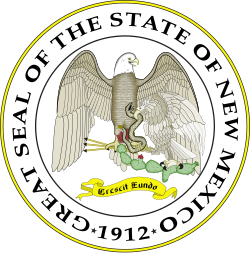| |||||||||||||||||
| |||||||||||||||||
 County results Schmitt: 50–60% 60–70% Montoya: 50–60% 60–70% | |||||||||||||||||
| |||||||||||||||||
| Elections in New Mexico |
|---|
 |
The 1976 United States Senate election in New Mexico took place on November 2, 1976. Incumbent Democratic U.S. Senator Joseph Montoya ran for re-election to a third term, but was defeated by Republican Harrison Schmitt. As of 2025, this is the last time that the Republicans have won the Class 1 Senate seat in New Mexico.
Contents
- Republican primary
- Candidates
- Campaign
- Results
- General election
- Candidates 2
- Campaign 2
- Results 2
- See also
- References
- External links
Harrison Schmitt's inauguration marked the first time since 1917 when both Senate seats were held by Republicans. Schmitt was the first non-Hispanic to have won this seat since Bronson Murray Cutting in 1934. This is also the last time a Democratic Senator from New Mexico lost re-election.
Schmitt won the election in a decisive victory. Joseph Montoya congratulated Schmitt on his victory, saying "The people have spoken and I accept their verdict." [1]

